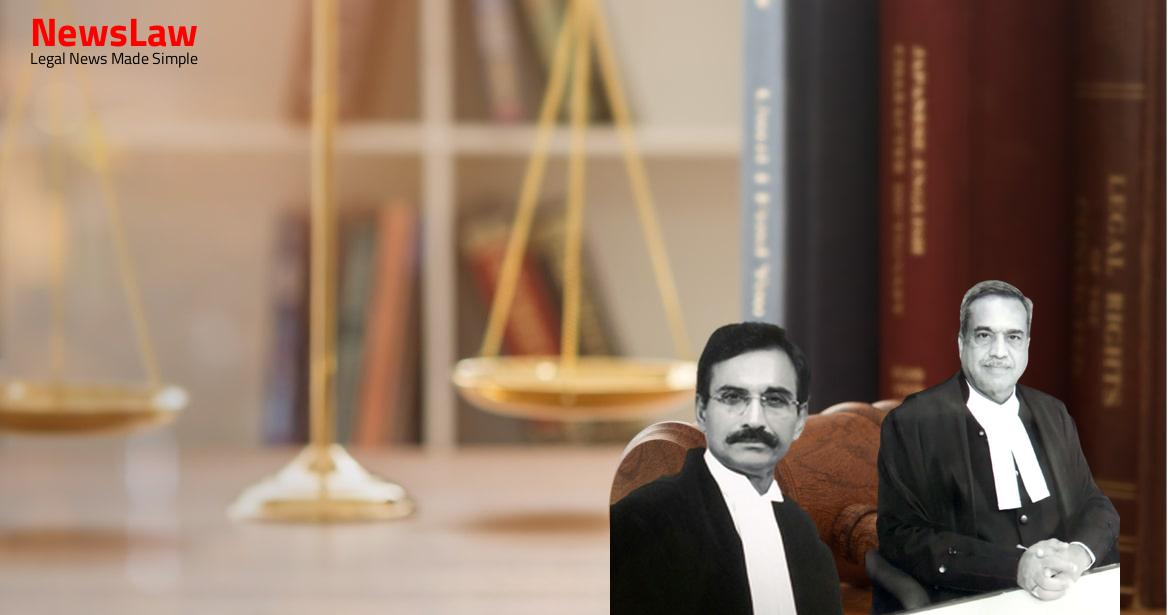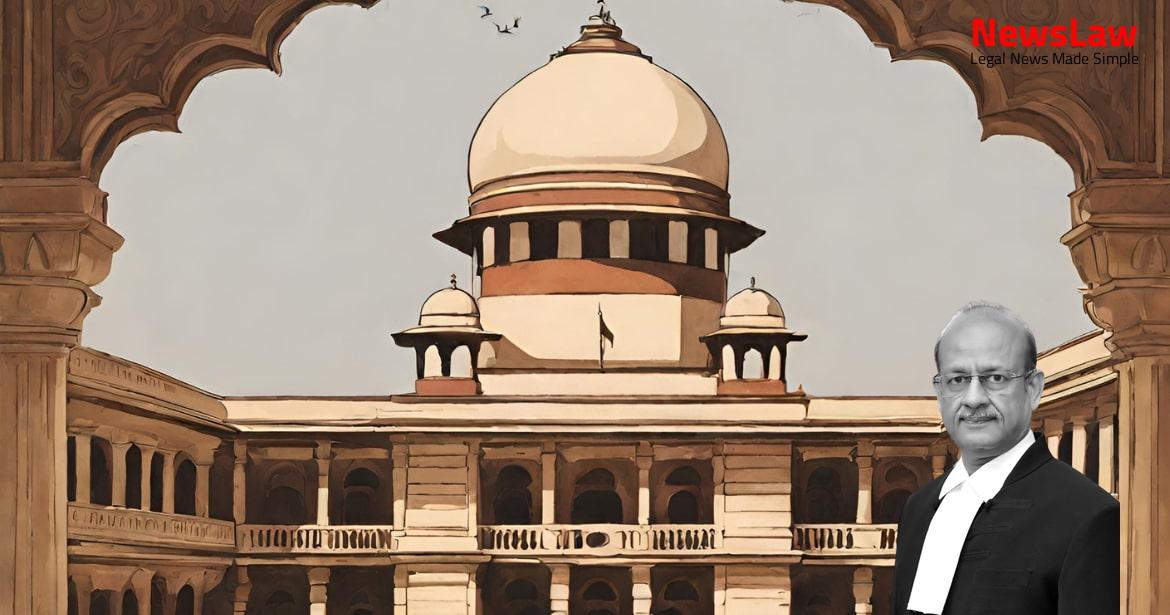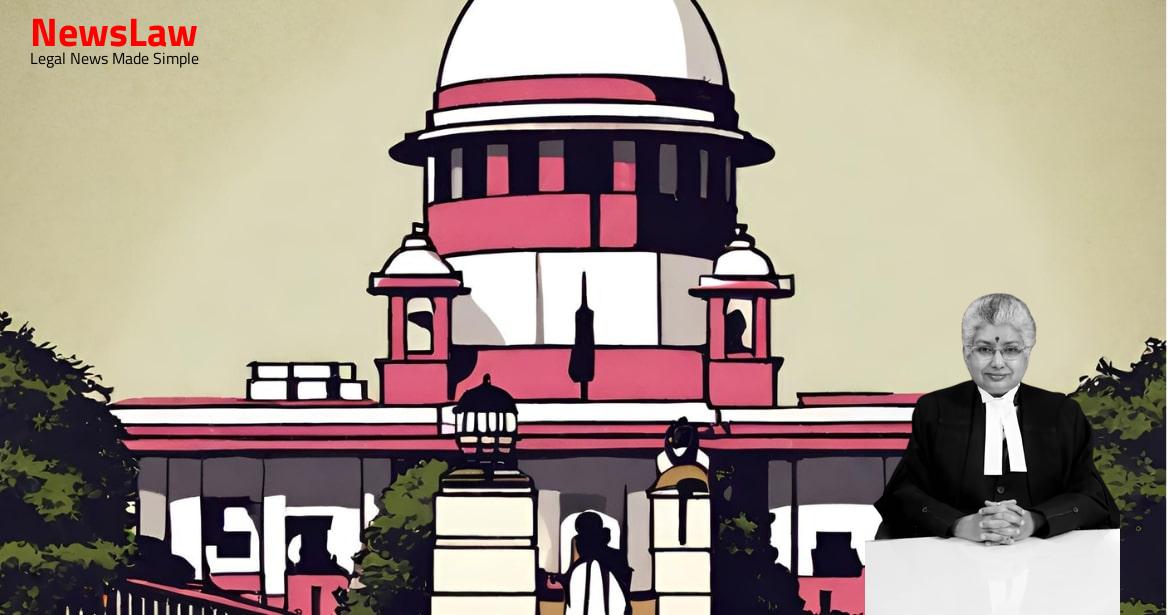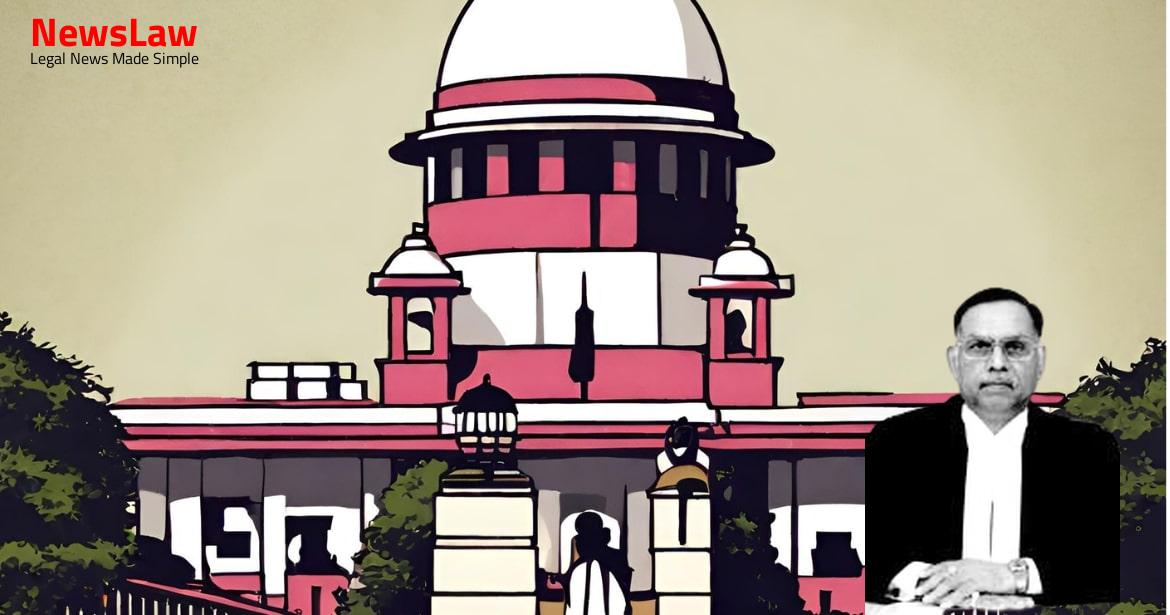In a significant legal development, the Supreme Court of India delivered a crucial judgment regarding a summoning order under Section 319 of the Criminal Procedure Code. The case involved the confirmation of the order summoning accused individuals to face trial for various offenses under the IPC. This judgment sets a precedent for ensuring justice is upheld and individuals involved in criminal activities are brought to trial in accordance with the law.
Facts
- The appellants were aggrieved by the judgment and order of the High Court dated 19.12.2018, which confirmed the order summoning them to face trial for various offences under the IPC.
- The FIR was lodged by Hukum Singh against ten accused, including the present appellants, for offenses on 12.06.2016.
- The incident occurred while Hukum Singh was on his way to his village with his son and another person on a tractor.
- The appellants were summoned for offenses including Sections 148, 149, 323, 324, 325, 302, 307, and 506 of the IPC.
- The accused named in the FIR were arrested and charged with various offences under the IPC.
- Different accused were armed with weapons such as hockey, baton, gandasi, pistol, iron bar, sword, and lathi.
- The Investigating Officer found that some of the accused were not present at the scene of the incident.
- Applications were filed to release the appellants as no evidence was found against them.
- The original informant submitted an application to summon the appellants to face trial based on corroborated evidence.
- Further investigation was conducted by the Investigating Agency which found that six of the accused were not present at the site of the incident.
- Accused attacked individuals due to a land dispute and one person succumbed to injuries.
- Summons were issued against the appellants to face trial for various offences under the IPC.
- The learned Magistrate confirmed the order to issue summons against the appellants.
- The trial proceeded against the remaining accused for whom the charge-sheet was filed.
Also Read: Address Update Requirement: Legal Implications for Corporate Entities
Issue
- Trial Court summoned the appellants under Section 319 of the CrPC to face trial.
- The main issue is whether Trial Court was justified in summoning the appellants given the facts and circumstances of the case.
Also Read: Army Discharge Case: Upholding Justice for Long Service Rendered
Arguments
- The learned Senior Advocate representing the appellants argues that there was no strong evidence at the time of trial to justify the summoning order passed by the Magistrate.
- The investigating agency concluded that the appellants were innocent and not present at the scene of the incident after a thorough investigation when the appellants were in judicial custody.
- The appellants were discharged by the SHO and the learned Magistrate based on their innocence and absence from the crime scene, despite opposition from the complainant.
- The High Court’s dismissal of the revision petition and confirmation of the summoning order under Section 319 of the CrPC was criticized for failing to consider the evidence collected during the investigation indicating the innocence of the accused.
- The power under Section 319 of the CrPC is deemed discretionary and extraordinary, to be used sparingly when circumstances warrant, as emphasized by the Supreme Court.
- The High Court and the Trial Court were accused of not properly understanding the extent of powers under Section 319 of the CrPC as per the arguments presented by the appellants’ Senior Advocate.
- The State’s counsel argues that the appellants were not discharged by the Magistrate based on the SHO’s applications.
- It is emphasized that there is no record of the Magistrate accepting the report against the appellants when the challan was filed against only four out of ten accused persons.
- The State asserts that the Magistrate did not follow the necessary procedure before accepting the closure report, as mandated by the Supreme Court’s decision in Bhagwant Singh v. Commissioner of Police.
- According to settled law, the informant should be given an opportunity to raise objections before a closure report is accepted, which was not done in this case.
- The State highlights that the informant and the injured eyewitness testified that the appellants were involved in the offense, leading to the Magistrate issuing summons for the appellants to stand trial with the other accused.
- The State contends that the Trial Court’s decision was rightly upheld by the High Court in the impugned judgment.
- The State further argues that the applications submitted by the SHO resulting in the appellants’ release from custody do not equate to a formal discharge order.
Also Read: Justice Served: Supreme Court Ruling on CBI Inquiry against Army Officer
Analysis
- The power under Section 319 CrPC is exercised during trial, not based on material collected during investigation.
- Summoning of accused can be done even if they were discharged earlier, if evidence surfaces during trial.
- If a person is discharged, the court can still summon them under Section 319 CrPC after carefully examining the evidence.
- To exercise power under Section 319 CrPC, compelling circumstances must exist.
- Evidence under Section 319 CrPC refers to witness statements and documentary evidence recorded during trial.
- The court’s power under Section 319 CrPC can be invoked before the pronouncement of judgment if evidence against a person not proceeded against appears.
- The court can proceed against a person after summoning if material received after cognizance can corroborate evidence already recorded.
- The court can exercise power under Section 319 CrPC against a person not subjected to investigation, named in the charge-sheet, or discharged.
- The court cannot cross-examine a person sought to be arraigned as an accused before passing an order under Section 319 CrPC.
- The court’s power under Section 319 CrPC should be exercised cautiously based on evidence led during trial and exceptional circumstances.
- Power under Section 319 CrPC can be exercised at the stage of completion of examination-in-chief.
- The court does not need to wait till the evidence is tested on cross-examination to exercise the power.
- The court’s satisfaction is key in determining the complicity of other persons not facing trial.
- Examination-in-chief untested by cross-examination can be considered as evidence.
- The court need not wait for the cross-examination of a witness to be completed before exercising power under Section 319 CrPC.
- The power under Section 319 CrPC can be exercised based on evidence from examination-in-chief alone.
- The word ‘evidence’ in Section 319(1) CrPC includes evidence from examination-in-chief and not just cross-examination.
- The exercise of power under Section 319 CrPC is discretionary and should be based on solid evidence.
- The purpose of Section 319 CrPC is to ensure that even persons not originally accused are brought to face trial if evidence suggests their involvement.
- The judgment in Hardeep Singh case provides insights into the exercise of power under Section 319 CrPC.
- Section 319 CrPC allows the court to summon a person not named in the FIR or charged.
- The court can exercise this power based on evidence during the trial that shows the person’s complicity in the offense.
- Evidence includes oral testimonies and documents presented before the court.
- The provision is enabling, giving the court the authority to take action against additional individuals involved in the offense.
- The High Court upheld the impugned judgment confirming the order passed by the Magistrate summoning the accused-appellants to face trial under Section 319 of the CrPC.
- The argument that the Magistrate did not have the power to summon the appellants under Section 319 of the CrPC was not accepted.
- Based on the reasons provided, there was no interference with the impugned judgment and order passed by the High Court.
Decision
- The accused were discharged by the learned Magistrate.
- The High Court agreed with the view taken by the Magistrate.
- In the present case, the appeal has failed and is dismissed.
- No interference is required by this Court.
Case Title: RAJESH Vs. THE STATE OF HARYANA
Case Number: Crl.A. No.-000813-000813 / 2019



